Liberty Matters
The Changing Vocabulary of Class Part 2: French Classical Liberals and the Political Economists
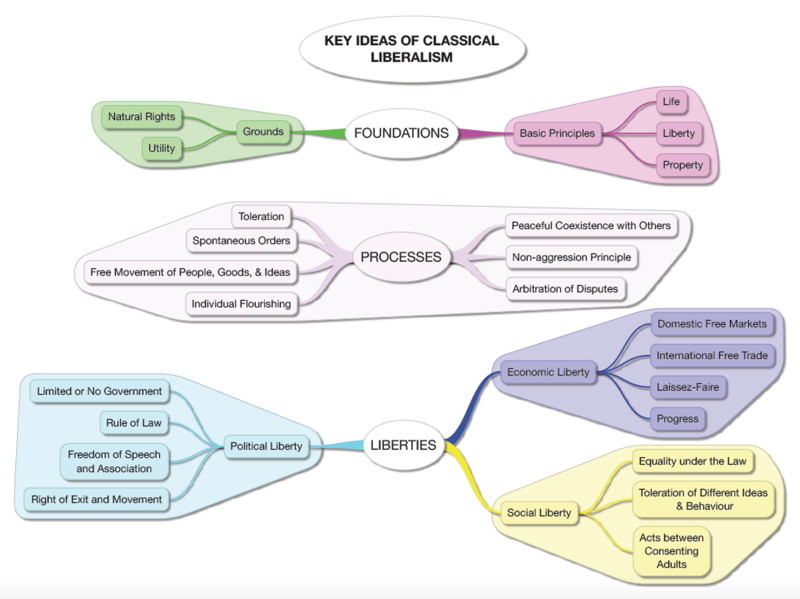 Here I want to examine some French language terms to describe class analogous to what I did earlier for English language terms.
Here I want to examine some French language terms to describe class analogous to what I did earlier for English language terms.Likewise, by the end of the 19th century the generic notion of “la classe dirigeante" (the ruling class) had become commonly used, most probably as part of a socialist view of class domination, as the graph below indicates (the time period is between 1750 to 1900 for all the graphs I generated). There is a suddeen spike in the late 1870s which I attribute to the rise of socialist parties in the new Third Republic. There is a similar pattern for the general term "l'oligarchie gouvernante" (the ruling oligarchy).
| 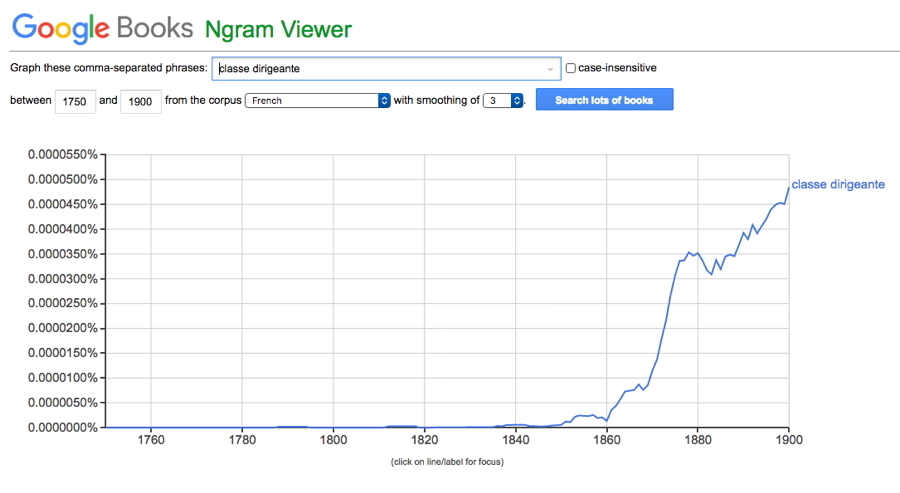 Generic notion of “la classe dirigeante" (the ruling class)
Generic notion of “la classe dirigeante" (the ruling class)
|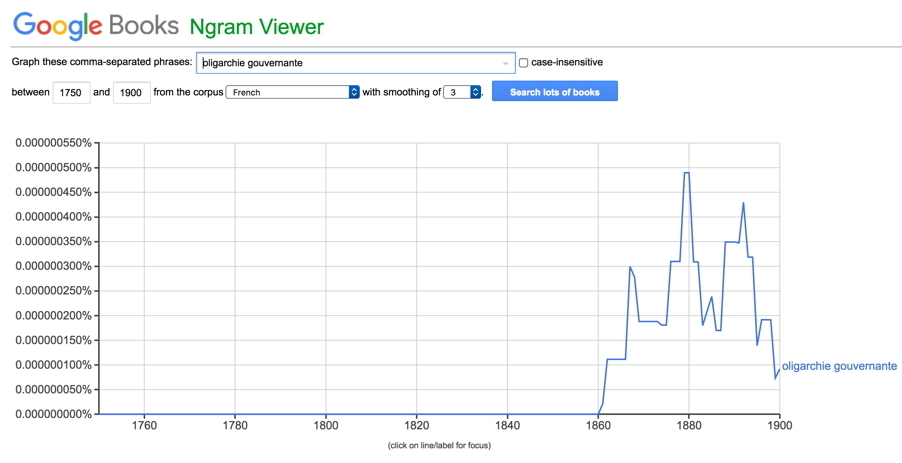 The general term "l'oligarchie gouvernante" (the ruling oligarchy)
The general term "l'oligarchie gouvernante" (the ruling oligarchy)
 Generic notion of “la classe dirigeante" (the ruling class)
Generic notion of “la classe dirigeante" (the ruling class)|
 The general term "l'oligarchie gouvernante" (the ruling oligarchy)
The general term "l'oligarchie gouvernante" (the ruling oligarchy)
During the 1810s and 1820s, under the influence of the economic ideas of the 18th century Physiocrats and in the Restoration period the work of Jean-Baptiste Say and Benjamin Constant, Charles Comte and Charles Dunoyer developed a theory of "industrialisme" (industrialism) by which they meant a system where the productive class, known as "les industrieux" or "la classe industrieuse" (the industrious or productive class), had the freedom to produce and trade with others with minimal or no regalation and taxation by the state and other "unproductive classes". After the 1848 Revolution the term "industrialism" lost its liberal Dunoyer-inspired meaning and became a general term to describe the industrial economy as we know it today.
| 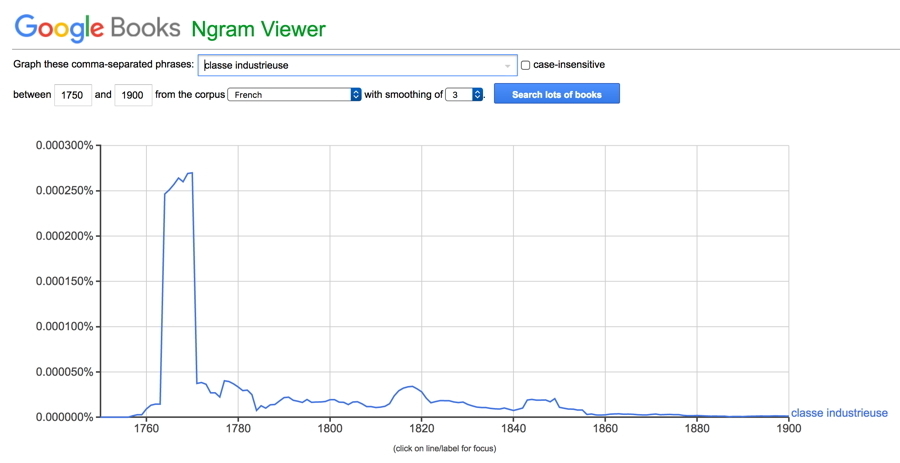 The Physiocratic term: "la classe industrieuse" (the industrious or productive class)
The Physiocratic term: "la classe industrieuse" (the industrious or productive class)
|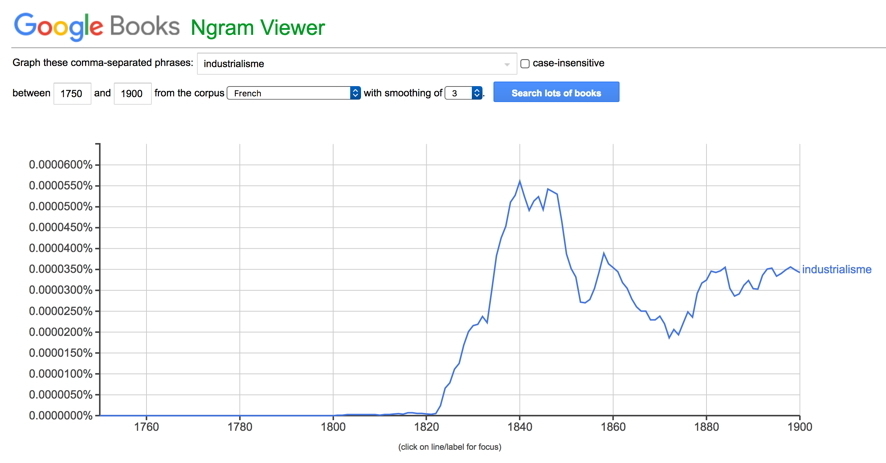 Comte and Dunoyer's theory of "industrialisme" (industrialism)
Comte and Dunoyer's theory of "industrialisme" (industrialism)
|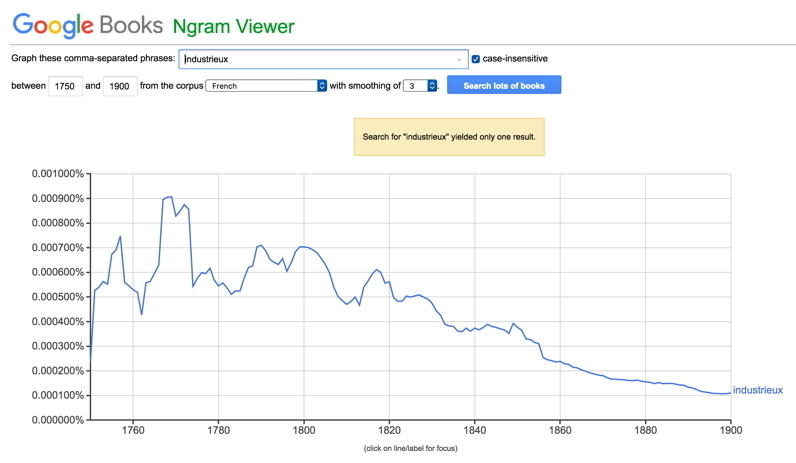 Comte and Dunoyer's term the "industrieux" (industrious)
Comte and Dunoyer's term the "industrieux" (industrious)
 The Physiocratic term: "la classe industrieuse" (the industrious or productive class)
The Physiocratic term: "la classe industrieuse" (the industrious or productive class)|
 Comte and Dunoyer's theory of "industrialisme" (industrialism)
Comte and Dunoyer's theory of "industrialisme" (industrialism)|
 Comte and Dunoyer's term the "industrieux" (industrious)
Comte and Dunoyer's term the "industrieux" (industrious)
Frédéric Bastiat adopted the phrase "la classe électorale" (the electoral class) to describe the very limited number of wealthy people who were allowed to vote during the July Monarchy (1830-1848) and who were able to use this political dominance to impose tariffs to protect French agriculture and manufacuring from foreign competition. The use of the term reached a peak around the time of the Revolution of 1848 which introduced universal manhood suffrage. It reached another peak at the time of the discussion of the constitution of the Third Republic in the early 1870s.
| ) Bastiat's phrase "la classe électorale" (the electoral class)
Bastiat's phrase "la classe électorale" (the electoral class)
) Bastiat's phrase "la classe électorale" (the electoral class)
Bastiat's phrase "la classe électorale" (the electoral class)
Another key term in Bastiat's theory of class is the idea of "la spoliation" (plunder). Those who benefited from tariffs and subsidies were called "la classe spoliatrice" (the plundering class) and those who were plundered he called "les spoliés" (the plundered). The use of the term "la classe spoliatrice" (the plundering class) reached a peak in the late 1840s just before Bastiat died, and another smaller peak when the second edition his Collected Works were pubished in the 1860s. Related to this was his theory of "la spoliation légale" (legal plunder) which he used to describe the institutionalisation of plunder by the state.
| 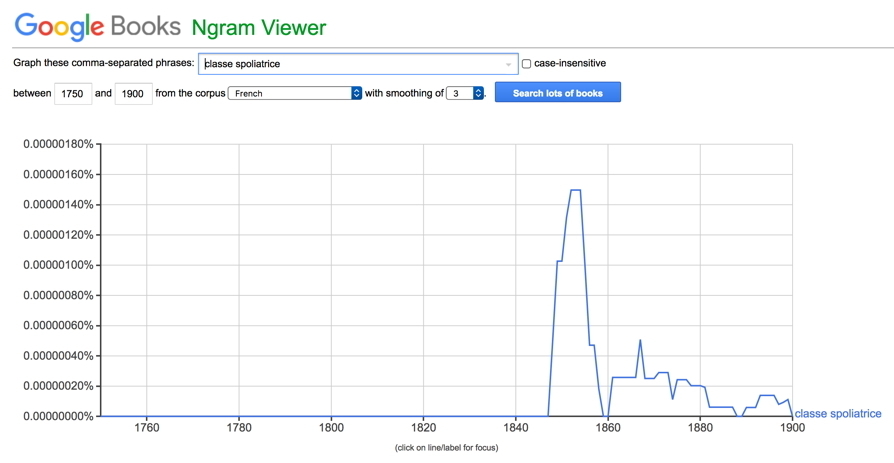 Bastiat’s term: "la classe spoliatrice" (the plundering class)
Bastiat’s term: "la classe spoliatrice" (the plundering class)
|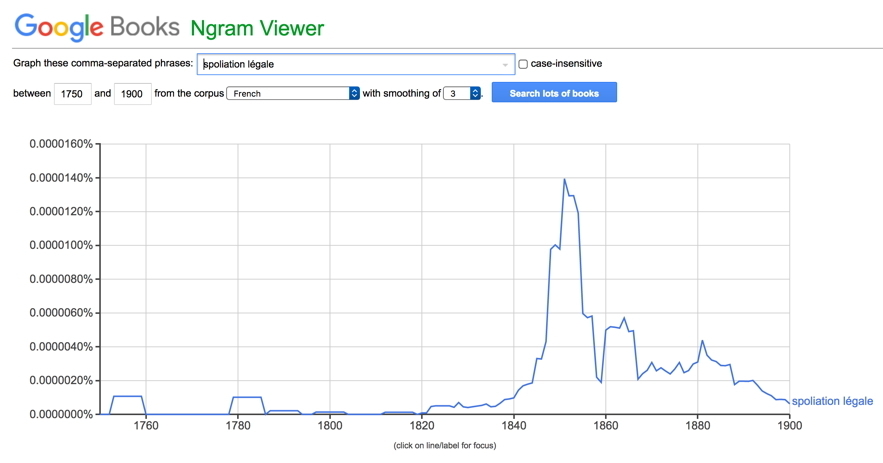 Bastiat's term "la spoliation légale" (legal plunder)
Bastiat's term "la spoliation légale" (legal plunder)
 Bastiat’s term: "la classe spoliatrice" (the plundering class)
Bastiat’s term: "la classe spoliatrice" (the plundering class)|
 Bastiat's term "la spoliation légale" (legal plunder)
Bastiat's term "la spoliation légale" (legal plunder)
Bastiat's younger friend and colleague Gustave de Molinari used the charming term “la classe budgétivore" (the budget eating class) to describe how vested instersts and government employees "ate" tax payers' money and thus formed a disctinct class in opposition to taxpayers. He began using the term in the 1850s and continued to use it after he became editor of the Journal des Économistes in 1881. I can't explain the spike in its use around 1840.
| 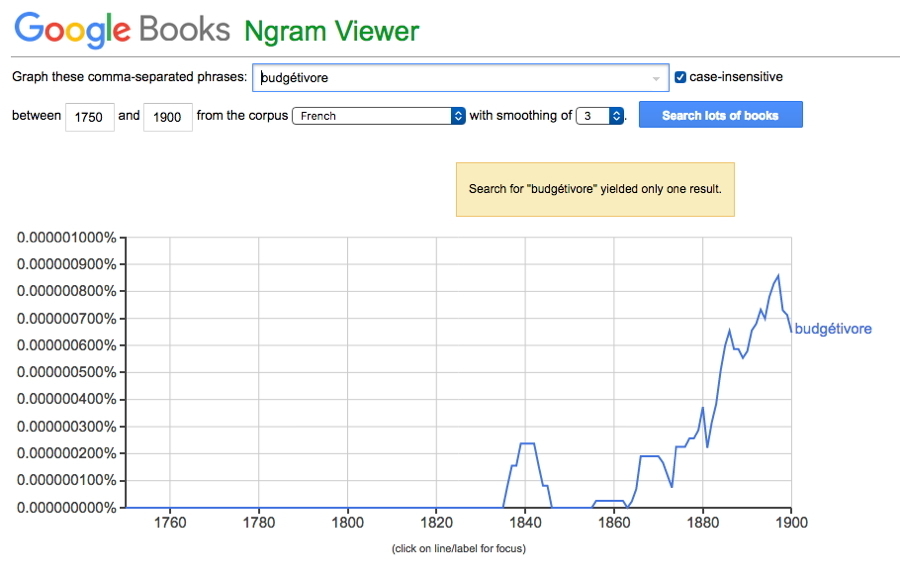 Molinari's term - “la classe budgétivore" (the budget eating class)
Molinari's term - “la classe budgétivore" (the budget eating class)
 Molinari's term - “la classe budgétivore" (the budget eating class)
Molinari's term - “la classe budgétivore" (the budget eating class)
Once again, we see the diversity of terms used by French classical liberals and political economists to describe class and class exploitation with no commonly agreed upon terminology being adopted. I believe this hampered the development of this "second tradition" of liberal thinking about class and left the field clear for a socialist or Marxist vocabulary and way of thinking about class to become the dominant one.
Copyright and Fair Use Statement
“Liberty Matters” is the copyright of Liberty Fund, Inc. This material is put on line to further the educational goals of Liberty Fund, Inc. These essays and responses may be quoted and otherwise used under “fair use” provisions for educational and academic purposes. To reprint these essays in course booklets requires the prior permission of Liberty Fund, Inc. Please contact oll@libertyfund.org if you have any questions.